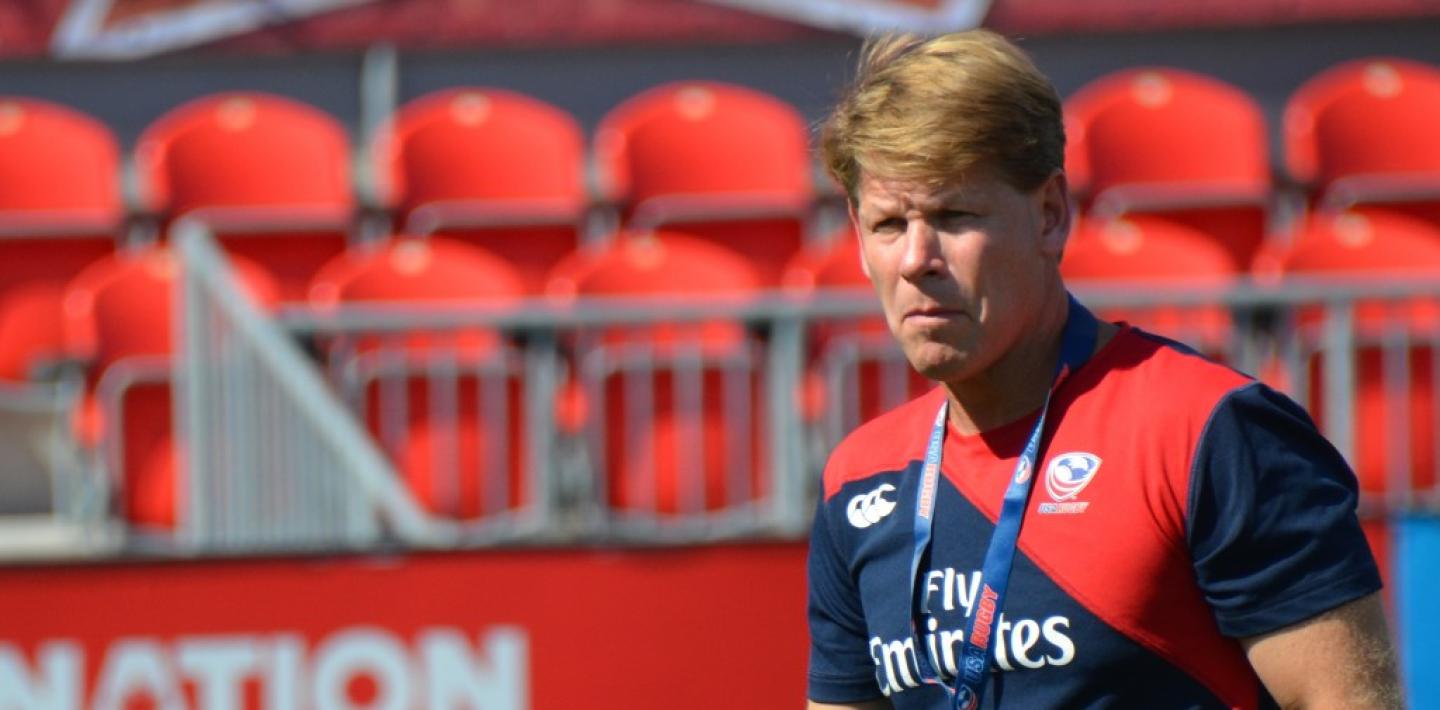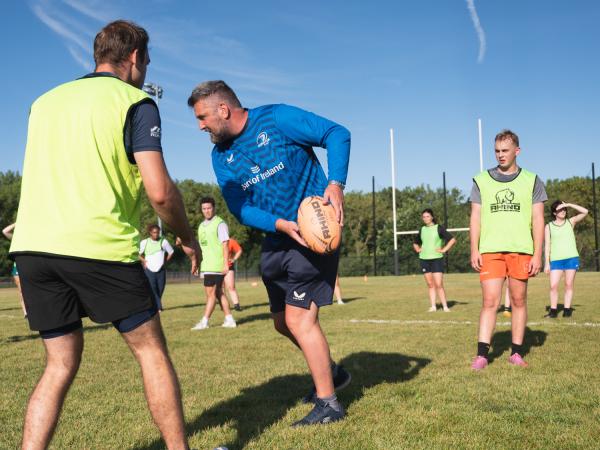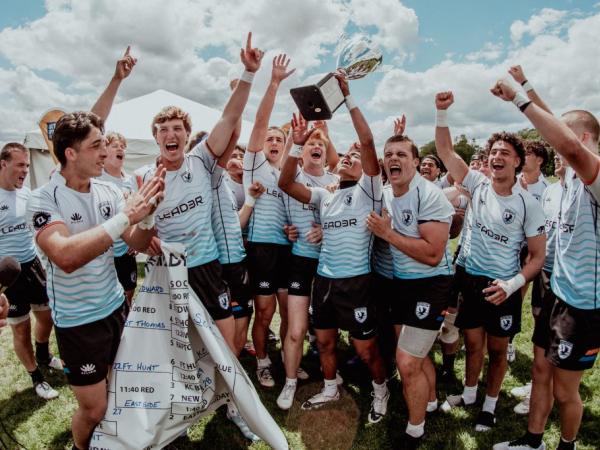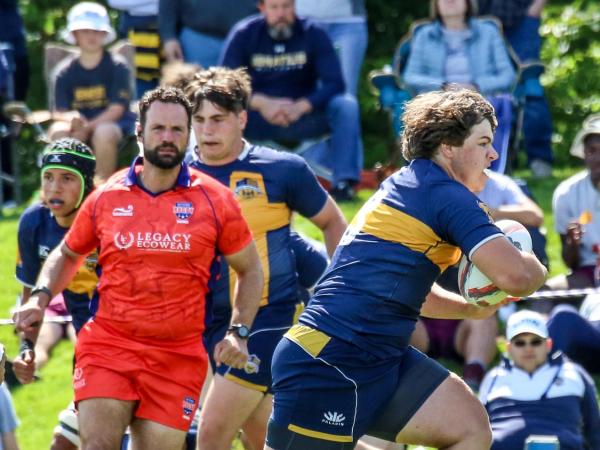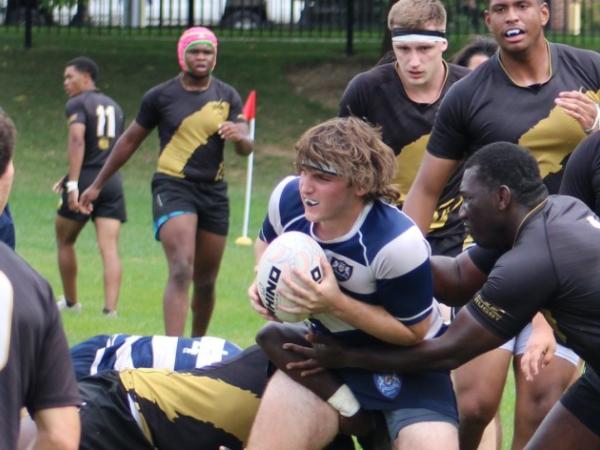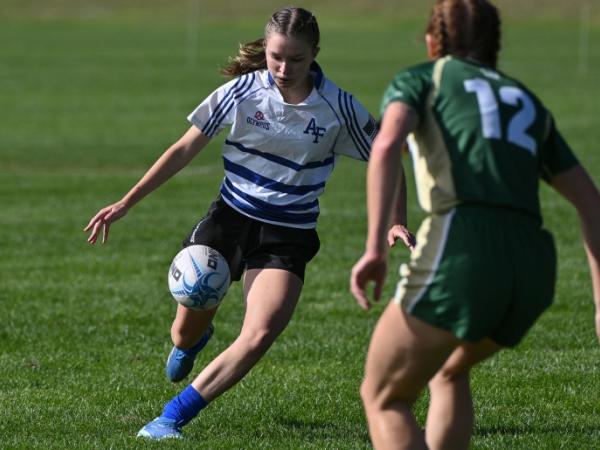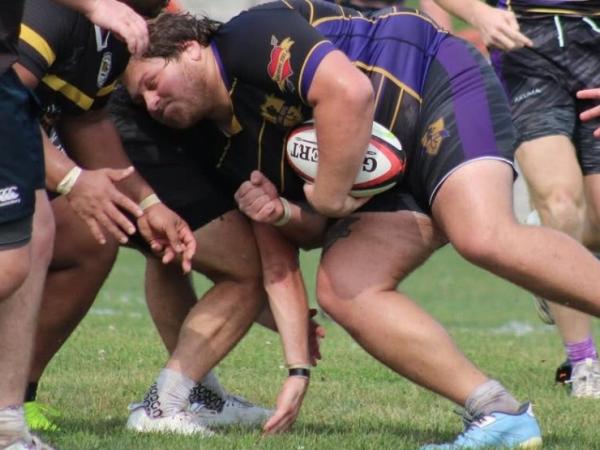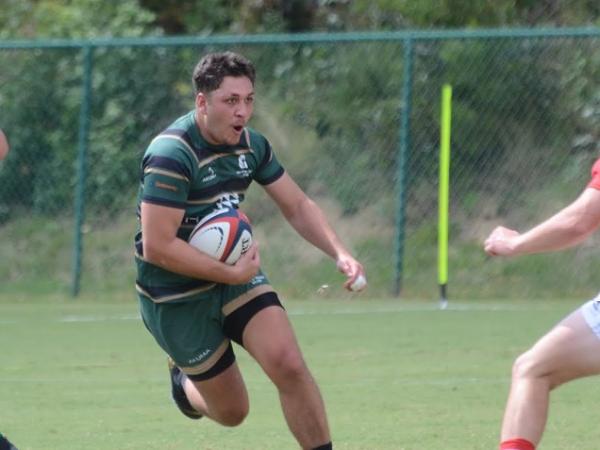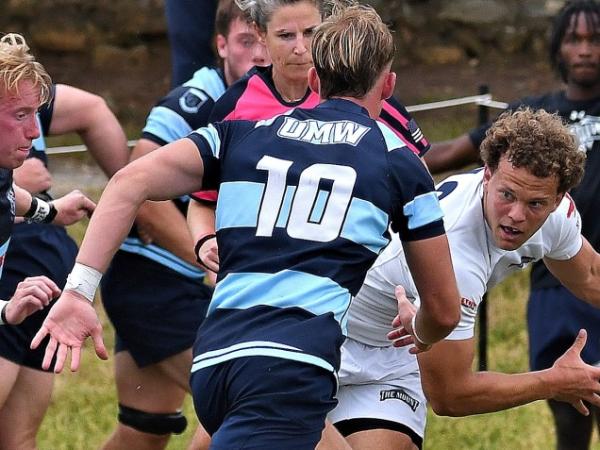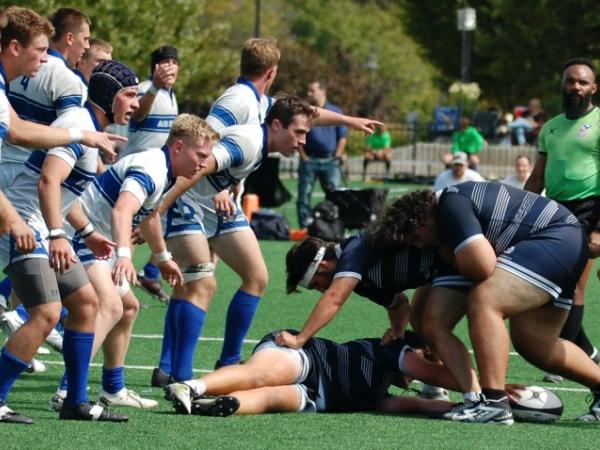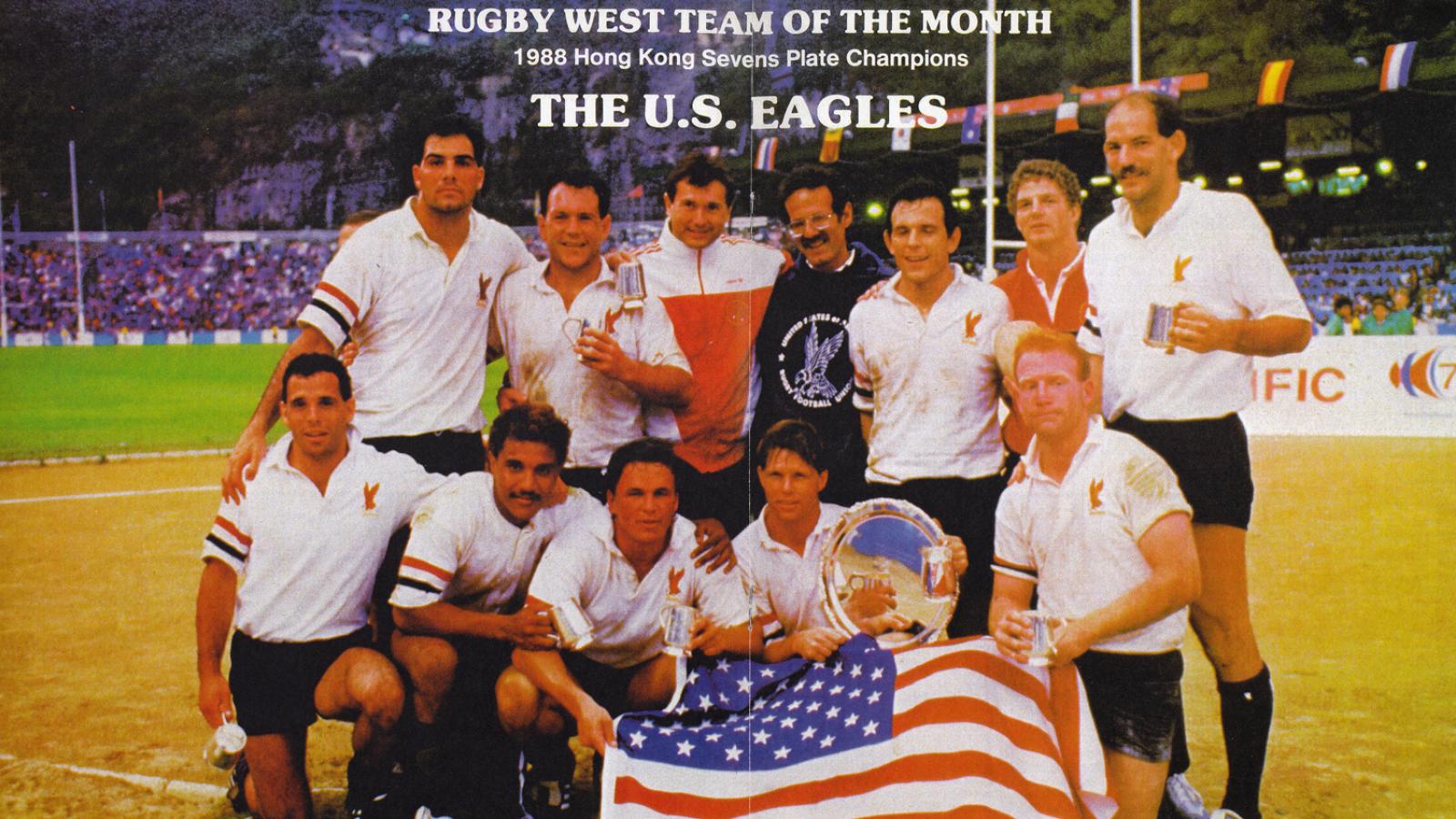This is an Op-Ed contribution from Joseph Sweeney. Sweeney is a longtime colleague of Mike Tolkin's, and was a teammate and co-coach of Tolkin's dating back to high school. He is currently the Xavier HS Program Director as well as Xavier's Dean of Faculty.
There’s a lot of excitement (and some anxiety) about the new USA coach, John Mitchell. That’s to be expected as we all hope for great things for our MNT. But lost in the excitement of new possibilities and the frustration over a winless World Cup has been Mike Tolkin. Now is a good time to review his tenure and give him his due.
Mike took the reins of the USA MNT amidst calls for a new direction in USA Rugby. After the Eagles had gone through a series of foreign coaches (Peter Thorburn, Scott Johnson, and Eddie O’Sulivan) many fans of the Eagles wanted to see the team led by an American who had more than a journeyman’s perspective on the team. They wanted a coach like Jack Clark or Tom Billups who would understand American players and put in the time (and the years) to ensure that the program developed long term.
Mike Tolkin was the coach that USA Rugby turned to, and it’s not hard to see why. There are few American coaches with a longer and deeper coaching resume than Tolkin. He began coaching in 1986, during his freshman year of college, and led his former high school (Xavier HS, NYC) to 4 National Championship titles. With an eye towards long-term development of America players Tolkin (along with Tony Smeeth) established the USA U19 program that eventually evolved into the HSAAs. While still coaching Xavier, he took the reins of The New York Athletic Club in 2000. At the time, NYAC was a team that had never won a regional championship and was generally seen as second fiddle to the dominant team in New York, Old Blue. In a few short years, Mike developed a winning culture at NYAC that led the team to national dominance with 3 National Championships in 2005, 2008 and 2010 (and one more in 2012 while led by Tolkin’s long-time assistant, Bruce McLane).
Recognizing Tolkin’s talents, Eddie O’Sullivan tapped Tolkin as the USA MNT defensive coach when O’Sullivan took over as Head Coach for the 2011 RWC. The USA’s defense in that tournament was widely seen as the team’s strongest area and Tolkin was named Head Coach of the Eagles shortly thereafter.
As the 2015 RWC was the scheduled end of Tolkin’s contract with USA Rugby, it’s easy to view Tolkin’s tenure as a failure (and certainly this is the reason Tolkin’s contract was not renewed) but such an assessment is short-sighted. The reality is that success at the 2015 RWC was achievable, but a long shot. Unlike in the World Cups in 1987, 2003, and 2011, the US was the underdog in each of its matches at the 2015 RWC. The USA faced South Africa, Samoa, and Scotland – three teams against whom no USA coach had ever recorded a win. The easiest match (at least on paper) for the USA was Japan, who had beaten South Africa earlier in the tournament. Compare that to the 2011 RWC, where our one win was a 13-6 defeat of Russia, who was ranked below us. While O’Sullivan’s Eagles beat Russia by 7, Tolkin’s beat Russia by an average of 18 points in their two matches.
While it’s fair game to critique the Eagles for not notching a big upset at the RWC, it’s inaccurate to rate the Tolkin years a failure on that fact alone – the results say otherwise.
When Tolkin was hired, the USA Rugby Board of Directors gave Tolkin a list of program goals. These were as follows:
- Create a positive squad culture and attitude among the Eagles
- Create an excitement about following the Eagles
- Create greater depth in the program
- Turn the scrum into a solid attacking platform by the RWC
- Defeat Canada 3/4 times we play them
- Move up in IRB Rankings
- Start to beat teams ranked higher than us
- Qualify for RWC 2015
Each of these program goals were achieved by the 2015. Many players and observers have reported that the USA team culture and attitude was strong and positive under Tolkin’s leadership. Excitement about the team has been high, with the Eagles setting records for match attendance during the Tolkin years. Tolkin created greater depth than ever before, with star players such as Taku Ngwenya having to fight for their spots against up and coming talents. More evidence of this growing depth is demonstrated in the USA A’s 6-2 at the past two ARCs. Thanks in large part to domestic forward assemblies and good work by Justin Fitzpatrick, the scrum had turned from a fatal weakness into a reliable platform by the RWC. From 2012 to 2015 the team climbed two spots in the IRB rankings and in the last two years of Tolkin’s tenure, the Eagles won 6 matches against teams that were ranked higher than the USA at the start of those years. Most satisfying for Eagle players and fans, under Tolkin, the USA turned the table on Canada, winning our last three matches against our northern rivals (the first three-win streak over Canada in USA history), the most recent of which was our largest winning margin ever over the Canadians, 41-23.
Beyond these goals, Tolkin’s Eagles achieved a number of other benchmarks. During his entire tenure, the USA never lost to a lower-ranked team. Under Tolkin, the eagles went 7-0 against Russia, Romania and Georgia – teams we had struggled with in the past. In November of 2013, the USA compiled its first ever winning record on a European tour. And this summer, the Eagles beat Japan for the first time in over ten years.
This list of successes under Tolkin is not a call for a “recount” that would get Mike his job back – coaching is a harsh business and a team’s poor performance on the biggest stage can cost a coach his job. But wisdom would suggest that we look beyond any one tournament when we evaluate the effect a coach has had on a program. That’s what NZ Rugby did after Graham Henry’s All-Blacks crashed to earth in the 2007 quarterfinal. Instead of sacking a good coach, New Zealand stuck with Henry, he continued to transform the All-Blacks, they won the 2011 World Cup, and his influence remains in the winning culture of the current All-Blacks dynasty. Mike Tolkin may not be the next Graham Henry, but we should recognize his successes and the progress USA Eagles made under his leadership.
In 2016 John Mitchell inherits a much stronger USA Eagle program than it was in 2012, and we owe a debt of gratitude to Mike Tolkin for that progress and the current positive direction of the team.





